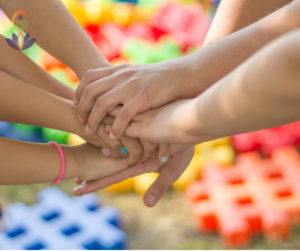Our Programs Include
• Mindfulness/ Meditation
• Creative Art / Movement
• Sound Healing / Drumming
• Creative Writing / Poetry
• Guided Visualization
The Effects
The effects of the loss, if not
addressed, are carried into adulthood:
• anxiety • low self-esteem
• feeling lost • social withdrawal
• guilt-ridden • binge eating
• sleeplessness • lack of motivation
• depression • self-destructive
behaviors and other health issues.
In a new neutering and safe setting and through our programs and therapies… kids feel a sense of connection, joy, empowerment, confidence, acceptance, better communication and above all self-worth.
What do children need?
Losing a parent or a loved one is difficult at any age, but for children, it may become more unbearable. Many children want to share their story. They may want to share what happened, where they were when they were told, and what it was like for them. Telling their story is a healing experience. We cannot fix it – but we can, and will, listen
Remember to show your feelings. You are affected as much as they are. Although they do not fully know how to express or react, children need continuity, care, and connection.
Continuity
Keeping and maintaining normal activities at home, at school, and in the community wherever possible. Inform the school and teacher about what has happened as soon as possible so that they are able to provide extra support for your child.
- After a death, many children want to share their story. Storytelling is a healing experience. Listening to young grievers is one of the best ways adults can help them.
Care
Hugs and cuddles are a necessity. Grief can be a very lonely experience not only for adults but especially for children. They are old enough to feel it, even though they may not know it but not fully comprehend the scope. It is important that your child continues to feel part of the family and cared for.
Connection
The whole family may feel fractured and incomplete. It’s quite natural to want to withdraw for a while and it is at this time that children can feel lonely and disconnected from the left behind parent, or caregiver who may also be grieving. Specifically, they need:
- adequate information, even if it is not detailed information about the death
- their fears and anxieties addressed
- reassurance that they are not to blame
- careful and attentive listening
- acknowledgment and acceptance of their feelings and grief
- a sense of safety in the world
- respect for their own way of coping
- people who will guide and mentor
- help with overwhelming emotions
- involvement and inclusion in rituals and anniversaries
- opportunities to remember the person who has died.